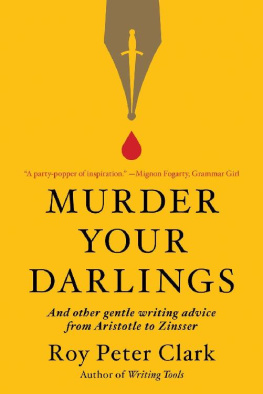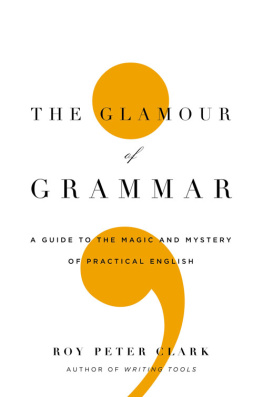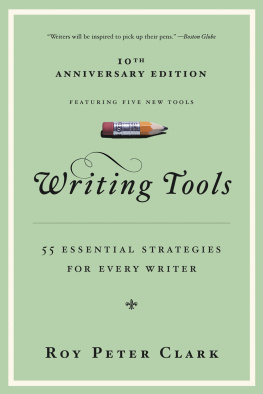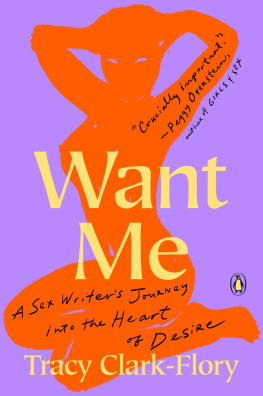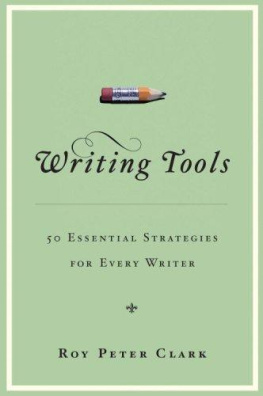Roy Peter Clark - Help! For Writers: 210 Solutions to the Problems Every Writer Faces
Here you can read online Roy Peter Clark - Help! For Writers: 210 Solutions to the Problems Every Writer Faces full text of the book (entire story) in english for free. Download pdf and epub, get meaning, cover and reviews about this ebook. year: 2014, publisher: Little, Brown and Company, genre: Home and family. Description of the work, (preface) as well as reviews are available. Best literature library LitArk.com created for fans of good reading and offers a wide selection of genres:
Romance novel
Science fiction
Adventure
Detective
Science
History
Home and family
Prose
Art
Politics
Computer
Non-fiction
Religion
Business
Children
Humor
Choose a favorite category and find really read worthwhile books. Enjoy immersion in the world of imagination, feel the emotions of the characters or learn something new for yourself, make an fascinating discovery.

- Book:Help! For Writers: 210 Solutions to the Problems Every Writer Faces
- Author:
- Publisher:Little, Brown and Company
- Genre:
- Year:2014
- Rating:3 / 5
- Favourites:Add to favourites
- Your mark:
- 60
- 1
- 2
- 3
- 4
- 5
Help! For Writers: 210 Solutions to the Problems Every Writer Faces: summary, description and annotation
We offer to read an annotation, description, summary or preface (depends on what the author of the book "Help! For Writers: 210 Solutions to the Problems Every Writer Faces" wrote himself). If you haven't found the necessary information about the book — write in the comments, we will try to find it.
Help! For Writers: 210 Solutions to the Problems Every Writer Faces — read online for free the complete book (whole text) full work
Below is the text of the book, divided by pages. System saving the place of the last page read, allows you to conveniently read the book "Help! For Writers: 210 Solutions to the Problems Every Writer Faces" online for free, without having to search again every time where you left off. Put a bookmark, and you can go to the page where you finished reading at any time.
Font size:
Interval:
Bookmark:
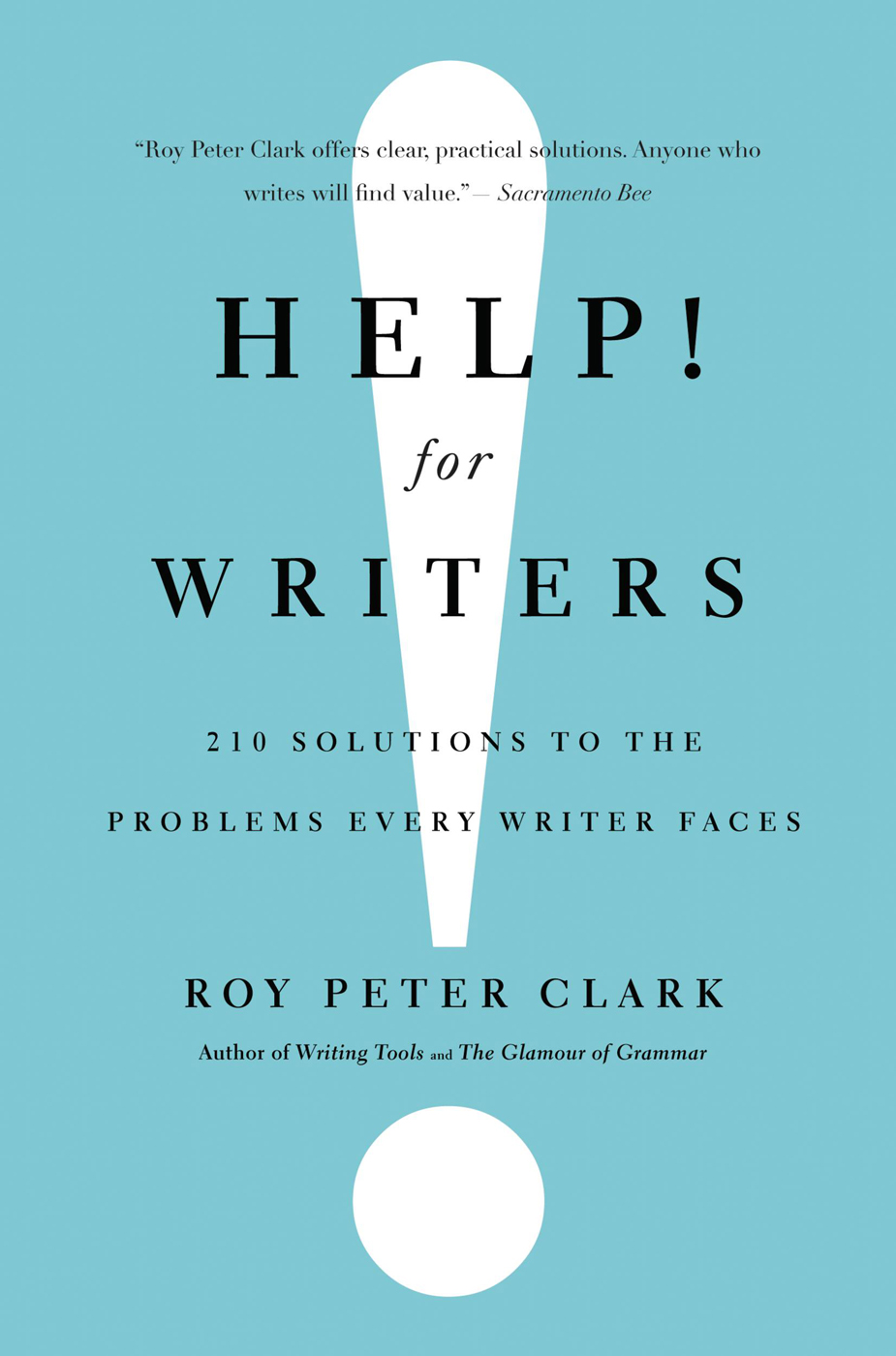
In accordance with the U.S. Copyright Act of 1976, the scanning, uploading, and electronic sharing of any part of this book without the permission of the publisher constitute unlawful piracy and theft of the authors intellectual property. If you would like to use material from the book (other than for review purposes), prior written permission must be obtained by contacting the publisher at permissions@hbgusa.com. Thank you for your support of the authors rights.
To my mother and first editor: Shirley Hope Marino Clark

Writing is not magic. Its a craft, a process, a set of steps. As with any process, things sometimes break down. Even in a good story, the writer runs into problems. So the act of writing always includes problem solving. At times, things get so bad, writers feel as if theyre drowning. Before going under, they reach for a lifeline.
This book offers that lifeline.
To hear some writers talk, you would think we have problems in the gajillions, from whether to use gajillion or gazillion, to whether that exclamation point after Help is necessary.
As Ive grown in my own craft, Ive listened to my brothers and sisters of the word and have developed a theory to focus this book. Here it is, my Theory of Writer Redemption: The big problems of writers are few in number and lend themselves to reliable solutions. I subscribe to the gospel of Donald Murray, one of Americas most influential writing teachers, that writersacross genres and disciplinesshare a similar process, a set of tactical steps. If you dig deep enough, you can discover that common method.
Surely, you wonder, the sonneteer must develop a different approach to the craft than the pamphleteer? How about the author of a 140-character message on Twitter? Is her process the same as the novelists? At the highest level of abstraction, my answer would be yes.
So what are those shared steps?
All writers need a kick start, a starters pistol, a spur to the flank, something that jolts them into action. This recurring need leads them to explore the world and their own experiences for writing ideas. Such curiosity turns them into hunters and gatherers who collect the raw materials that render their reports and stories interesting and significant.
A writer who goes exploring can bring home so many treasures that the writing space and the writers mind can become cluttered. Writers must be able to find what they need when they need it. At this stage, it is too early to know whether an author has what she needs to fill a novel or memoir or annual report with interesting and important ideas, facts, and language.
Each piece of writing benefits from a focus, a guiding idea, a scene, or an emotion that communicates to writer and reader what the work is really about. A telegram, Twitter post, or haiku needs a focus, but so does a short story, a love note, or a complaint about your plumber to the Better Business Bureau. Such a unifying notion helps the writer select the best collected materialthe best characters, the best details, the most important points, down to the best word and the best mark of punctuation. A focus will help the writer craft an opening sentence or paragraph; and sometimes writing that paragraph is required to find a focus. Its the yin/yang of the writing process.
The Old English poets were said to have a word hoard from which they could choose the best language to shape their poems. How great it would be to throw open a closet door and find just the right word for just the right writing task. Where do such words come from? They come from a life of reading and study of the craft, from the daily experience of language, from travel, from dictionaries, and from the research required to gather not just raw data but the ideas, images, and key words necessary to understand a group of people or a field of study.
It is never easy to know when its time to sit down at your keyboard to create a first draft. The writer often feels resistance at this stage, expressed as writers block or procrastination. The writing will begin to flow if the writer has attended to the earlier steps. W. H. Auden once described a poem as a verbal contraption with a person, a guiding intelligence, hiding inside. All texts are constructed, often from a blueprint or plan, erecting an architecture of meaning and purpose. The writer must decide on a sequencewhat goes first in a work and what goes last. A haiku has three lines, a legal brief builds an argument, Shakespeare wrote plays in five acts and sonnets in fourteen lines. Each part of the work carries a special power, magnified when the writer creates an effective structure for the whole.
When writers talk to teachers or editors, they often blurt blurry language to mask the one key question that concerns them: How am I doing? As a coach, my version of that question, as I approach a writer, is How is it going? Everyone wants a progress report, calibrated against different goals and criteria. The writer makes preliminary judgments about the current quality of the work and how much time and energy are left to improve it. The writer can reach conclusions on his own but often benefits from an intervention. When Donald Murray was asked how the days writing had gone, he had two reliable answers, both framed in the affirmative. He could respond by quantity: I produced ten pages before lunch. Or, if necessary, by quality: I wrote one really great sentence this morning.
Completing a draft of a text can be such hard work that the writer may be charmed by the illusion that the job is almost finished. But the process does not stop there. The final problem for the writer is how and what to revise, what to delete, what to insert. It is during revision that the writer will refine, polish, and perfect a work that can never be perfect but can grow and become good enough to fulfill the writers purpose. Key to a successful endgame is to leave time and energy for revision, the way a long-distance runner saves energy for a sprint to the finish line.
Get started
Get your act together
Find focus
Look for language
Build a draft
Assess your progress
Make it better
If those seven phrases represent the writers largest and most imposing tasks, the effort to complete them can be stymied by a set of pesky problems. Those problems have influenced the structure of Help! Each chapter begins with an explanation of one stage of the writing process, followed by questions for reflection. At each stage you will encounter three of the most persistent and difficult obstacles to completing that task, a total of twenty-one common writing problems. For each problem, I offer ten practical and proven solutions, drawn from the work and life stories of successful writers, living and dead. Do the math (even you English majors) and realize you own the 210 writing solutions promised on the cover, enough lifelines to survive a mudslide of deadlines.

Feel free to think of Help! For Writers as an owners manual for your writing process. When I bought my 2002 Chrysler PT Cruiser, my first job was to read the owners manual from beginning to end, just to get the lay of the automotive land. I dont remember consulting it again until the evening a neighbor knocked to alert me that my dome light was on, draining my battery. I tried the usual fixes: flicking switches, checking fuses, slamming doors. Nothing worked. I was stuck. What could I do? Why dont you consult the owners manual, said my wife with grumpy disdain.
Font size:
Interval:
Bookmark:
Similar books «Help! For Writers: 210 Solutions to the Problems Every Writer Faces»
Look at similar books to Help! For Writers: 210 Solutions to the Problems Every Writer Faces. We have selected literature similar in name and meaning in the hope of providing readers with more options to find new, interesting, not yet read works.
Discussion, reviews of the book Help! For Writers: 210 Solutions to the Problems Every Writer Faces and just readers' own opinions. Leave your comments, write what you think about the work, its meaning or the main characters. Specify what exactly you liked and what you didn't like, and why you think so.


